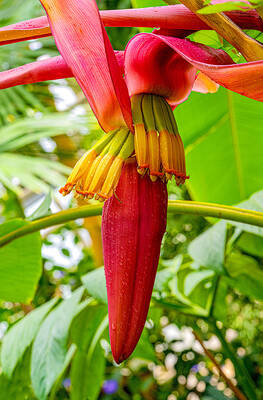Over the course of April and May, three masked palm civets were found stuck in a trench drain on the National Nei-Pu Senior Agricultural-Industrial Vocational High School (NPVS) campus in Pingtung County. Teachers and students of the NPVS Department of Wildlife Conservation embarked upon a civet rescue.
According to Lee Shih-chin, a teacher in the department, civets are nocturnal animals, and the animals had probably entered the ditch to search for food or escape from dogs. To stop more civets from getting trapped in the drain, and possibly injured, the students decided to clean up the drainage channel so the creatures could get through safely.
Lee says that before carrying out the rescue operation, the students were advised to observe the animal first: one should never touch injured ferret badgers or masked palm civets with bare hands due to the risk of exposure to germs. So far this year, students have rescued a Malayan night heron which had its eye pecked out, an abandoned spotted dove squab and a cat wounded in a trap, among other creatures. The cases have provided the students with the chance to learn and practice how to rescue and care for animals, while at the same time allowing them to do their bit for wildlife conservation.

Photo courtesy of Taipei zoo
照片:台北市立動物園提供
(Liberty Times, translated by Lin Lee-kai)
屏東縣內埔農工野生動物保育科學生今年四、五月連續發現三隻白鼻心被卡在校園內的排水道中,師生遂展開救援行動。
野保科教師李仕琴說,夜行性活動的白鼻心可能因覓食或被狗追逐,才潛遁在排水道內。為避免白鼻心卡在排水溝內受傷,學生們決定動手清理排水道,希望白鼻心可以安全利用通道活動。

Photo copied by Chiu Chih-rou, Liberty Times
照片:自由時報記者邱芷柔翻攝
李仕琴說,帶學生執行救援行動前,先觀察動物情形,如遇到受傷的鼬獾、白鼻心千萬不可徒手接觸以免感染病菌。學生們今年陸續救援眼球遭啄傷的黑冠麻鷺、被親鳥棄養的小斑鳩、遭捕獸夾夾傷的貓等動物,除了學習傷救與照養技術,也為保育盡一份心力。
(自由時報記者邱芷柔)

Have you ever wondered why “Manila envelopes” carry that name? The answer lies in a plant native to the Philippines. Though a fruit-producing plant, abaca is most valued for its leaf stalks, which are __1__ to extract fibers known as “Manila hemp.” These fibers are known for their strength and resistance to saltwater. Because of its __2__ in sea environments, Manila hemp has long been used to make Manila rope, a staple in the sailing and maritime industries for centuries. It withstands harsh ocean conditions without its flexibility being __3__. Manila rope doesn’t break down easily when exposed to

A: In addition to boyband Energy’s concerts, Taiwan’s first major male dance revue has attracted attention. B: Several South Korean male dance revues and Australia’s Thunder from Down Under often tour Taiwan. Now Taiwan’s first all-male revue has finally appeared. A: According to the Liberty Times, Muscle High: A Male Dance Revue from Taiwan, featuring 13 hunks, opened last month and will run until Sept. 14. B: The rise of “hunk fever” in recent years has even caused a trend of working out in Asia. A: Let’s go to the Taipei Music Center’s Sub Livehouse for the show. A:

A: Any fun events happening this weekend? B: Boyband Energy’s concerts and Taiwan’s first major male dance revue have both sparked anticipation recently. A: Energy staged a comeback last year — 15 years after they disbanded — and they’re now more popular than ever. B: Their megahit “Friday Night” even won Song of the Year at the Golden Melody Awards. A: To pay tribute to the Queen of Pop Madonna, they added her choreography of 16 continuous jump squats to their music video, prompting a “16-squat challenge” that went viral across Taiwan. Do you wanna try it out? A:

In a major step to combat carbon emissions, Norway’s pioneering “Northern Lights project” is set to expand its carbon capture and storage (CCS) capabilities. Backed by energy giants and the Norwegian government, this collaborative project is working to increase its annual carbon storage capacity from 1.5 million to over five million tons. Northern Lights focuses on capturing CO2 emissions from industrial sources across Europe and securely storing them underground. Captured CO2 will be liquefied and transported by ship to the storage facility located off the coast of Norway. It will be injected through pipes into geological formations about 2,600m below the